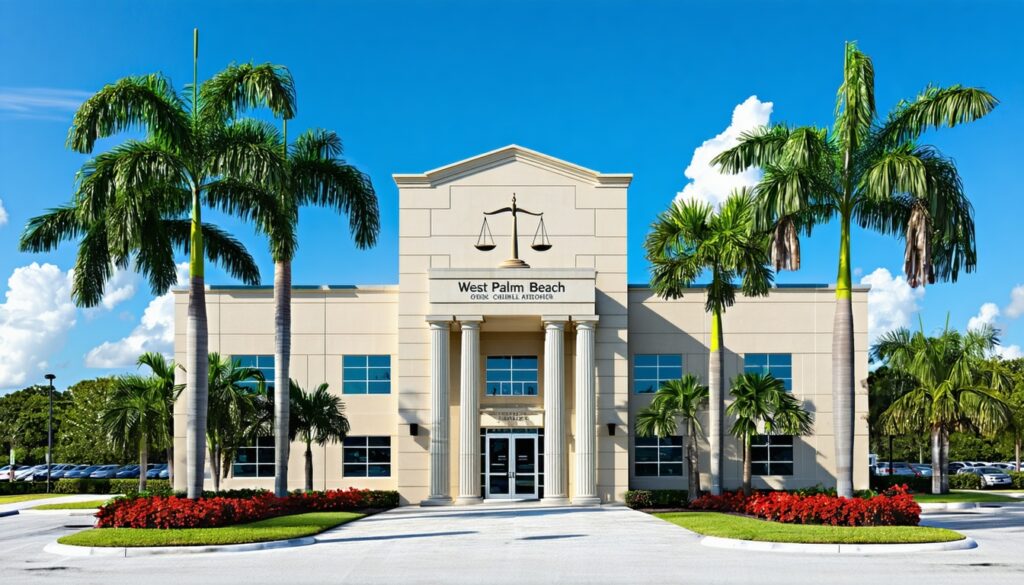
Venturing into the tangled mess of bankruptcy law is far from a walk in the park—especially in Florida. When your money matters are in shambles and you don’t know which way is up, smart folks look to bankruptcy lawyers for help. Their expertise can be a lifesaver.
The rules surrounding bankruptcy in Florida aren’t exactly a light read, and wading through them can test anyone’s patience. This is where the pros come in handy, stepping up with the know-how and drive to protect your financial peace of mind. Rest assured, you’re not going through this alone. Top-notch bankruptcy lawyers are in your corner, ready to offer advice and act as advocates with a personal touch.
While we’re zeroing in on Florida’s specific set of bankruptcy rules, it’s key to grasp the details and choices that come with seeking legal help to get some money relief. From picking out your type of bankruptcy—be it Chapter 7, Chapter 13, or the oddballs like Chapter 11 and Chapter 12—to figuring out who can qualify and how your assets play in, it’s a maze best tackled with someone who knows the ropes.
This guide is all about shining a light through the murk of bankruptcy law in the Sunshine State. Our goal is to arm Floridians with the essentials they need to make the right calls when considering bankruptcy. A solid grip on how it all works—from the steps involved to what it means for your future—offers a welcome beacon when you’re staring down uncertain times.
So let’s get this show on the road and untangle what bankruptcy law in Florida has to offer, pointing the way to a brighter financial tomorrow. With the wisdom and backing of seasoned bankruptcy lawyers, navigating these murky waters doesn’t have to be a solo venture. They’re your go-to allies during financial storms, ensuring your journey through Florida’s bankruptcy law ends with renewed stability and a clean slate.
- Do You Need a Bankruptcy Lawyer in Florida?
- Types of Bankruptcy in Florida
- Who Qualifies for Bankruptcy in Florida?
- What Debts Can and Cannot Be Erased
- What Happens to Your Property in Bankruptcy?
- The Bankruptcy Process in Florida Step by Step
- How Much Does It Cost to File Bankruptcy in Florida?
- Common Mistakes to Avoid When Filing Bankruptcy
- What Life Looks Like After Bankruptcy in Florida
- Bankruptcy Alternatives in Florida
- Frequently Asked Questions
- How much debt do you need to file bankruptcy in Florida?
- Will I lose my home or car in bankruptcy?
- How long does bankruptcy take?
- Can I get rid of medical bills or credit card debt?
- What is the difference between Chapter 7 and Chapter 13?
- How long will bankruptcy stay on my credit?
- Can I buy a house after bankruptcy?
- What happens if I filed before? Can I file again?
- Will everyone know I filed for bankruptcy?
- What do I need to bring to my first meeting with a bankruptcy lawyer?
- Speak with a Florida Bankruptcy Lawyer Today
Do You Need a Bankruptcy Lawyer in Florida?
Facing financial troubles is no fun, and when it hits hard in Florida, you might find yourself considering bankruptcy. Now, whether or not you need a lawyer is the big question. It’s about knowing when bankruptcy’s your best shot, whether you can handle filing all by yourself, and how a lawyer can make this whole stressful mess a bit less of a headache.
When Bankruptcy Is the Right Choice
Figuring out if it’s time to file for bankruptcy is a big deal. If you’re drowning in debt, can’t keep up with bills, or creditors are knocking a little too loud, it might be time to consider it. Bankruptcy can give you a fresh slate, wiping out those unmanageable debts and letting you start over.
Can You File Without a Lawyer?
Sure, you can file without a lawyer, but it’s like trying to assemble a complicated piece of IKEA furniture without the instructions—confusing and messy. Bankruptcy laws have more twists and turns than a rollercoaster, and they’re not the same everywhere, with Florida having its own set of quirks. A lawyer can steer you clear of pitfalls, making sure your rights aren’t trampled.
How an Attorney Helps You Save Time and Stress
Getting a bankruptcy lawyer on your side in Florida is like having a GPS when you’re lost. They simplify the process, so you don’t have to play the guessing game. From filing paperwork and showing up for court dates, to talking down creditors, they’ve got your back. Their expertise means fewer headaches for you and a smoother ride through the whole ordeal.
By getting some solid legal support, you aren’t just hiring any lawyer—you’re gaining a partner who knows Florida’s financial ropes, able to tackle tricky cases like Chapter 7 and Chapter 13 bankruptcies. With their help, you’ve got a better chance of making it through the storm and finding that financial peace again.
Types of Bankruptcy in Florida
Understanding the maze of bankruptcy in Florida means figuring out which type is the right fit for your money troubles. Everyone’s got their own situation, so the chapter you pick really matters. We’re gonna break down the four main types of bankruptcy in Florida: Chapter 7, Chapter 13, Chapter 11, and Chapter 12.
Chapter 7 Bankruptcy
Chapter 7 bankruptcy, or what some folks call “liquidation bankruptcy,” helps people and businesses get a clean slate by selling off stuff to pay debts. In Florida, Chapter 7 lets you wipe out most of your unsecured debts, which is a lifesaver if your finances are spiraling.
| Criteria | Chapter 7 Bankruptcy |
|---|---|
| Means Test Required | Yes |
| Eligibility | Individuals, businesses |
| Key Features | Selling off assets to clear debts |
Curious about how to qualify for Chapter 7 in Florida? Check out our full scoop on quit claim deed florida.
Chapter 13 Bankruptcy
Chapter 13, or “reorganization bankruptcy,” is for people who earn regular paychecks and want to pay their debts through a plan over three to five years. It’s a way to keep what you’ve got while sorting out what you owe.
| Criteria | Chapter 13 Bankruptcy |
|---|---|
| Means Test Required | Yes |
| Eligibility | Individuals |
| Key Features | Debt repayment plan |
Want to see if Chapter 13 is your ticket out? Our guide on how to file for unemployment in florida might help connect the dots.
Chapter 11 Bankruptcy (for Businesses)
Chapter 11 isn’t just bookkeeping; it’s for businesses needing a debt makeover while staying open. If you’re running a business in Florida, this might be how you keep the wheels turning and work out a plan with creditors over time.
| Criteria | Chapter 11 Bankruptcy |
|---|---|
| Means Test Required | No |
| Eligibility | Businesses, corporations |
| Key Features | Business debt reworking |
Need more details on Chapter 11 to keep your business on its feet? Get the lowdown in our article on personal injury attorney florida.
Chapter 12 Bankruptcy (for Farmers and Fishers)
Chapter 12 is like a lifeline for family farmers and fishers in a bind. It’s specifically cooked up for folks in these industries to rework their debts and keep doing what they do best.
| Criteria | Chapter 12 Bankruptcy |
|---|---|
| Means Test Required | Yes |
| Eligibility | Farmers, fishermen |
| Key Features | Made for farm and fish folk |
Farmers and fishers can get the full scoop in our piece on florida personal injury lawyers to see how Chapter 12 can be of help.
Knowing the different types of bankruptcy can be the first step in finding your way out of debt in Florida. Make sure you reach out and get legal advice, so you’re not wandering on your own.
Who Qualifies for Bankruptcy in Florida?
Figuring out if you’re eligible for bankruptcy in Florida means knowing a few things like how much money you’re making, which chapter you’re going to file for, and if you’ve lived in the state long enough.
What Is the Means Test Anyway?
This means test thing is pretty much a way to see if your bankruptcy application makes the cut. It compares your earnings with Florida’s average to figure out if you can go for Chapter 7, which wipes everything clean, or if you have to chip away at debt with Chapter 13 payment plans.
| Family Size | Florida’s Average Income |
|---|---|
| 1 | $51,517 |
| 2 | $62,857 |
| 3 | $68,612 |
| 4 | $82,163 |
Chapter 7 and 13—How Much Do You Make?
Here’s the deal in Florida: if your earnings are less than the average family income, Chapter 7 might be your best bet. If you’re making more, Chapter 13 might be where you’re headed, using what you earn to make those debts more manageable.
| Chapter Option | Income Required |
|---|---|
| Chapter 7 | Below average income in Florida |
| Chapter 13 | No specific limit, but pay off using what you earn |
So, What About Residency?
To file for bankruptcy in Florida, you need to have been living there for a while. That’s the rules, and it’s important to make sure you’re playing by them before starting the process. Get your ducks in a row first.
To figure out if you’re all set to file for bankruptcy in Florida—making sure you’re using the right test, meeting the income rules, and are a bona fide Floridian—it’s smart to chat up some seasoned Florida bankruptcy lawyers. They’ll get you through the red tape with some peace of mind.
What Debts Can and Cannot Be Erased
Trying to get a grip on bankruptcy can be a bit like herding cats, especially when it comes to figuring out what debts might just disappear and what debts like to stick around and haunt you. In Florida, I’m here to break down which bills you can say bye-bye to and which ones are stubbornly non-erasable. So, let’s roll up our sleeves and sort this out.
Credit Card Debt, Medical Bills, and Loans
So, you’re knee-deep in plastic debt, medical invoices, and personal loans? Don’t worry, you’re not alone. Filing for bankruptcy might sound scary, but it can actually help kick some of those debts to the curb. In Chapter 7, you might need to sell off some stuff, and in Chapter 13, set up a payment plan. Both ways aim to help you get rid of credit card debt, medical bills, and other unsecured loans that have you pulling your hair in frustration.
Starting fresh is possible once these debts are tossed out. Finding an ace bankruptcy attorney can ensure you don’t get lost in the foggy bankruptcy terrain. They’ll have your back and help you figure out how to best tackle your debt problem.
What Bankruptcy Cannot Remove (Student Loans, Taxes, etc.)
While bankruptcy seems golden for some debts, it’s not exactly a magic wand. Some pesky obligations don’t disappear into thin air, no matter how much we wish they would. The usual villains in this lineup include:
- Student Loans: Like a clingy ex, student loans are hard to shake unless you can prove that they’re causing you an impossible hardship.
- Taxes: Some tax dues refuse to budge, especially those that are recent or linked to fraud. No tax hide-and-seek here.
- Child Support and Alimony: These are non-negotiable. Supporting your kids or ex won’t disappear, even in bankruptcy.
- Court Fines and Penalties: Owe the government? They mean business. These debts are like sticky notes you can’t remove.
- Debts from Personal Injury Claims: If you’ve got debts from injuries caused by things like drunk driving, they’re here to stay, no getting off the hook.
Getting a bird’s-eye view of which debts disappear and which ones don’t is key if you’re thinking of going the bankruptcy route in Florida. Chatting with a seasoned bankruptcy attorney can help clarify your situation and point out the right steps to manage your debts.
As you tiptoe through the bankruptcy maze, don’t forget to lean on the pros for advice so your wallet doesn’t take unnecessary hits. Whether you’re struggling with credit card bills, medical expenses, or any other financial woes, a savvy bankruptcy lawyer can be your go-to guide. If bankruptcy’s on your mind as a way out of your financial mess, find yourself a good attorney in Florida who can walk you through the ins and outs and help you make smart choices about finding relief from your debts.
What Happens to Your Property in Bankruptcy?
Thinking about going bankrupt in Florida? Worrying about what might happen to your house and car? Don’t sweat it too much, but do get the scoop on what assets you can keep and what might be on the chopping block before jumping into the process.
Can You Keep Your House?
Your house is often your biggest worry, right? Good news – you might hang onto it! Florida’s got this nifty thing called the homestead exemption. It’s like a little shield for your home against creditors. Don’t break out the confetti just yet, though. There are some rules – stuff like how big the place is, and how long you’ve owned it. Best to chat up a bankruptcy attorney to see if you’re in the clear.
Can You Keep Your Car?
Nobody wants to hoof it everywhere. Lucky for you, Florida doesn’t either. There’s an exemption to protect some equity in your ride, so you won’t be trading it in for bus tokens just yet. It all comes down to the value of your car. A quick powwow with a bankruptcy lawyer will help assess your situation.
What Is Considered Exempt Property in Florida?
Surprised? Florida isn’t all gators and oranges. They’ve got some goodies for folks in bankruptcy, like exemptions for stuff you use every day. Think—furniture, clothes, and must-have personal items. Knowing what’s safe from pawn shops can take some of the stress outta going broke. Get clued in on what you can hang onto by chatting with a lawyer who knows the ropes. They’ll help you keep as much of your stuff as possible.
Assets You May Lose in Chapter 7
Chapter 7 bankruptcy is the sale-everything-you-can’t-keep type. Important to know what’s up for grabs here. High-value items, investments, and extras can be at risk of being sold off to pay back what’s owed.
To make sure you don’t lose your shirt or Grandma’s heirloom necklace, finding a bankruptcy-savvy lawyer is key. They’ll navigate you through the pitfalls, keep your interests front and center, and help you stride through the legal maze.
Feeling the fear slip away yet? With the right guidance and a solid understanding of the rules, you might just come out of this whirlwind alright.
The Bankruptcy Process in Florida Step by Step
Going through bankruptcy in Florida? Don’t sweat it. By breaking it down, you can better handle the situation and make savvy choices about your finances. Here’s the lowdown on doing bankruptcy in Florida:
Step 1: Credit Counseling
First up, before you can file, Florida expects you to check in with a credit counselor from an approved agency. This isn’t just a hoop to jump through; it’s a chance to take stock of your money mess, see if there’s a way out that doesn’t involve the B-word, and get the skinny on managing your dollars better.
Step 2: Filing Your Petition
Next, it’s paperwork time! You’ll need to file your bankruptcy papers with the court in Florida. This isn’t just any old form; it’s the whole kit and caboodle of your financial life—debts, income, what you own, and any other money matters. Be honest and thorough here to keep everything on the up and up.
Step 3: The Automatic Stay Begins
As soon as your papers hit the court, you’re under the automatic stay umbrella. Fancy words, but basically, it means creditors have to back off. No more calls, no visits from the repo guy, and your paycheck’s safe from garnishment. Gives you a bit of breathing room to sort things out.
Step 4: Meeting of Creditors
Not long after your filing, you’ll have a get-together known as the 341 meeting. Show up ready to chat with your attorney, the bankruptcy trustee, and maybe even some creditors. They might poke around in your financial details, so be upfront. This part’s crucial to keeping your case on track.
Step 5: Discharge of Debt
If you hit all the checkboxes, the court might give you a debt discharge—a get-out-of-debt card for those eligible liabilities. Not a magic wand for everything (student loans, I’m looking at you), but it can wipe the slate clean on many fronts.
Stick to these steps and team up with a Florida bankruptcy attorney to keep your financial ship from sinking. Thinking of filing, or just need some wise advice on getting out of debt? Chat with a Florida bankruptcy lawyer and get the tailored help you need.
Remember, having legal help can make a world of difference in getting through bankruptcy. A good attorney will steer you past pitfalls and help you make smart choices so you’re not flying blind.
How Much Does It Cost to File Bankruptcy in Florida?
If you’re feeling overwhelmed by debt and considering filing for bankruptcy in Florida, you’re probably wondering about costs. Whether it’s Chapter 7 or Chapter 13 you’re eyeing, let’s break down those numbers.
Filing Fees for Chapter 7 and Chapter 13
So, what’s it gonna cost? For starters, there are filing fees. Here’s the scoop for Florida:
| Bankruptcy Chapter | Filing Fee |
|---|---|
| Chapter 7 | $338 |
| Chapter 13 | $313 |
But fees change faster than gas prices, so it’s wise to check with local experts or your attorney for the latest info.
How Lawyers Charge (Flat Fee or Payment Plan)
Here’s where things get interesting. Lawyers in Florida have a couple of ways they might hit you with the bill:
Flat Fee: It’s like one-stop shopping for legal help. You pay a set price, no matter how tangled your financial web might be.
Payment Plan: Not everyone can drop a huge wad of cash upfront, and lawyers get that. Some will let you chip away at the bill with a payment plan. This might ease the load if you’re strapped for cash.
Can You File for Free or Get Help?
Tight on money? Been there, done that! Check out these life rafts if you’re worried about the cost:
Pro Bono Services: Sometimes lawyers want to do good deeds. If you qualify, they might help for free or really cheap.
Legal Aid: Nonprofits and legal aid outfits are out there, lending a hand to folks who fit the bill, income-wise.
Self-Help Resources: Feeling brave? You can go the DIY route with free guides, forms, and workshops online. Just be sure you know what you’re doing.
Filing for bankruptcy in Florida doesn’t have to be a mystery. Hooking up with a sharp attorney who knows the ropes can make the ride smoother. Once you have all the numbers and options in hand, you’ll be ready to make some smart choices about what comes next.
Common Mistakes to Avoid When Filing Bankruptcy
Filing for bankruptcy in Florida ain’t no walk in the park. But if you can side-step a few hiccups, you’ve got a better shot at starting fresh without too much hassle. Let’s dive into some key mistakes to dodge when considering bankruptcy:
Waiting Too Long to File
Putting off bankruptcy is like ignoring that pile of dirty laundry—it only gets worse. The longer you wait, the more debt piles up, and before you know it, you’re knee-deep with no easy way out. If your debts are out of control, it’s time to chat with a bankruptcy attorney pronto.
Transferring Assets Before Filing
Think you can get sneaky and move your stuff around before filing? Think again. The court’s got a keen eye for spotting those shady deals. Hide your assets, and you’re looking at fraud accusations that could sink your chances of a successful case. Best to keep it honest and talk things over with a legal pro.
Failing to List All Creditors
Forget to mention a couple of creditors? That’s a disaster waiting to happen. You need to lay all your cards on the table—get every debt and lender down on paper. It’s the only way to make sure your case looks at all the angles and keeps things on the up and up.
Missing Your Court Dates
Blowing off a court date is like letting your alarm clock snooze all morning—you’re only asking for trouble. Skipping out means delays, more money down the drain, or even having your case kicked out entirely. Keep those court dates top priority so everything goes off without a hitch.
Steering clear of these missteps can really smooth out the whole bankruptcy gig. Being open, smart, and on top of things is your best bet for shaking off debt and getting back on track. Need a hand with it all? A wise bankruptcy attorney in Florida is just a call away, ready to help you plot your course.
What Life Looks Like After Bankruptcy in Florida
Getting back on track after bankruptcy can feel like climbing a steep hill, but knowing what lies ahead can make the climb a bit smoother.
Will Your Credit Score Go to Zero?
Bankruptcy will take a chunk out of your credit score, but it won’t hit rock bottom. The drop depends on where your score started and which bankruptcy route you took. Chapter 7 lurks on your credit report for ten years, while Chapter 13 hangs around for seven. The good news? With a little elbow grease and smart money moves, your credit score can make a comeback.
How to Rebuild Credit Step by Step
After the dust settles, getting your credit back on its feet is a must. Start by setting a budget, paying your bills on time, and using credit wisely. Getting a secured credit card or a credit-builder loan could give your credit a needed nudge. Keep an eye on your credit report like it’s your favorite TV show, looking out for mistakes or signs of life in your score.
When You Can Buy a House or Car Again
Snagging a house or car after bankruptcy? Timing’s everything. It depends on what kind of bankruptcy you filed, how your score looks afterward, and what lenders are willing to do. You might find a loan for a house or ride within 1 to 3 years post-bankruptcy, but be ready for bigger down payments or heftier interest rates.
How Long Bankruptcy Stays on Your Credit Report
Bankruptcy sticks on your credit report like gum on a shoe, but it won’t hang around forever. Chapter 7 can haunt you for ten years, Chapter 13 for seven. Yet, show the banks you’re good for it after bankruptcy, and they might give you a chance with some credit sooner rather than later.
Maneuvering through life after bankruptcy takes some planning and sticking to good money habits. By upping your credit game, gearing up for big buys, and knowing the score on your credit report, you can stride forward with a spring in your step toward solid financial ground. Want to chat more about your options in Florida? Reach out to a Florida bankruptcy lawyer for advice that’s all about you.
Bankruptcy Alternatives in Florida
If you’re feeling the pinch and bankruptcy’s flashing like a red traffic light, don’t fret just yet. In the Sunshine State, there’s a buffet of options that might help you get those financial hiccups under control. Whether you’re thinking about smooshing your debts together, striking a deal with creditors, or getting a little financial schooling—Florida’s got your back.
Debt Consolidation
Think of debt consolidation like cleaning up that sock drawer. You gather all those pesky debts into one neat package with a lower interest tag. It’s like turning ten bills into a single, way less annoying one. Folks around here can tag along with debt consolidation outfits or score a loan that does the same trick—a bit like putting all the clutter into one handy basket.
Yeah, it might lighten your load with smaller monthly bites and maybe save some green on interest down the road. But a little heads-up—the fine print is your friend. Work with people you trust, maybe chat up a financial sage or a counseling wizard. Oh, and if debt consolidation’s got you curious, hop on over to our article on quit claim deed florida for more juicy insights.
Debt Settlement
Ready to do a little haggling? Debt settlement’s like having a garage sale with your creditors—you aim to knock down what you owe. Team up with a company that knows what they’re doing, or grab the bull by the horns yourself. If things go well, you might just whittle that debt down to something more manageable.
But it’s not all sunshine and rainbows. Your credit could take a hit, and Uncle Sam might come knocking for taxes on any forgiven debts—so keep your wits about you. A good idea is to have a chat with legal eagles or your own financial Yoda to suss out the best game plan. For the down-low on how this works locally, our piece on how to file for unemployment in florida is the place to be.
Credit Counseling
This is like calling in a financial coach to get your money matters back on track. In Florida, there are agencies that can spill the beans on budgeting and get your finances flexed with debt management plans and personalized advice.
Sign up for a session and walk away smarter. You could be hitting goals with your budget, cooking up plans to pay off debts, and generally keeping your money matters from going off the rails. Curious about how this counseling gig could be your ticket to peace of mind? Check out our guide on how to file for divorce in florida, brimming with practical tips catered for Floridians.
So, before you hit that panic button, give consolidation, settlement, and counseling a whirl. Considering your choices carefully, and roping in the pros when needed, can help chase away those financial blues. Still feeling a bit lost about the best way forward? No shame in ringing up some legal or financial whizzes to chart out your right path.
Frequently Asked Questions
Want to get a grip on bankruptcy in Florida? You’re in the right spot. Here we take on some big questions about going bankrupt in this state so you can figure out your financial moves more clearly. Let’s dive into the nitty-gritty.
How much debt do you need to file bankruptcy in Florida?
No magic number here. The debt level for filing bankruptcy isn’t set in stone—it’s more about your unique situation. Talking to a bankruptcy lawyer is a smart step to see if this route fits your needs and challenges.
Will I lose my home or car in bankruptcy?
Losing your home or car isn’t a done deal. It boils down to the bankruptcy type and the equity tied up in those assets. Florida’s bankruptcy laws offer exemptions that might help you keep these possessions. A chat with a bankruptcy attorney can clue you in on your options.
How long does bankruptcy take?
Bankruptcy timelines aren’t one-size-fits-all. Chapter 7 cases could wrap up in a few months. Chapter 13, though, includes a repayment plan that could stretch three to five years. An attorney can lay out a clear path based on your situation.
Can I get rid of medical bills or credit card debt?
Bankruptcy might wipe out debts like medical bills or credit card debt, giving you a clean slate. Each case is different, so getting a lawyer’s take can tell you what debts could vanish.
What is the difference between Chapter 7 and Chapter 13?
So, Chapter 7 or Chapter 13, what’s the deal? Chapter 7 is about selling stuff to pay creditors. Chapter 13 is more about paying back over time. Picking the right one depends on your green situation. A lawyer can steer you clear on what’s best for you.
How long will bankruptcy stay on my credit?
Bankruptcy clings to your credit report for a while—Chapter 7 up to ten years, Chapter 13 around seven. It’s a bit of a drag but remember, rebuilding is possible. Your lawyer can guide you on boosting that credit score back up.
Can I buy a house after bankruptcy?
Yep, you can still snag a house post-bankruptcy. Mortgage approval depends on your credit score, finances post-bankruptcy, and lender rules. Teaming with a bankruptcy lawyer and lender helps smooth the path to homeownership.
What happens if I filed before? Can I file again?
Filing again is possible but not a free-for-all. Factors like past filings, time gaps, and current financial mess all matter. If you’re thinking of filing another round, confer with your attorney about what’s what.
Will everyone know I filed for bankruptcy?
Your bankruptcy filing is on public record, but it’s not broadcasted for the world to see. While it’s available in court records, chances are, if folks aren’t directly linked to your case, they won’t even bat an eyelid.
What do I need to bring to my first meeting with a bankruptcy lawyer?
Before that initial lawyer meet, round up your financial papers—recent tax returns, paystubs, bank accounts, asset values, and debt lists. Having your documents ready lets your lawyer get a solid grip on your case right off the bat.
Speak with a Florida Bankruptcy Lawyer Today
Feeling the financial squeeze and thinking about bankruptcy in Florida? It’s high time to get some legal insights just for you. Hooking up with a savvy Florida bankruptcy attorney gives you the roadmap and backup you need to simplify the tangled legal ropes.
Free Chat’s On the Table
Plenty of bankruptcy lawyers in Florida throw in a no-cost first chat to size up your situation and chew over your options. During this meet-up, spill your financial beans, grasp the types of bankruptcy out there, and pin down what’s likely to click for your circumstances.
Just Straight-Up Legal Aid, No Glares
A well-versed bankruptcy lawyer knows your struggles inside out and focuses on handing you solid legal aid, minus the side-eye. They’ll break down your financial mess, lay out what bankruptcy might mean for you, and walk you through everything with kindness and insight.
Local Spots or Virtual Sit-Downs
Wherever life has you in Florida—be it Miami, Orlando, Tampa, or elsewhere—savvy bankruptcy lawyers have offices all over to lend you a hand pronto. Plus, the option for virtual chats means you can hash things out from your couch, hassle-free.
Considering bankruptcy to shake off those financial chains? Don’t drag those feet. Reach out to a Florida bankruptcy lawyer now. By doing this, you’ll get a clearer picture of your choices, keep your rights intact, and edge closer to rebooting your money game.






